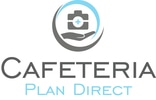|
A new law allows certain small employers--those with fewer than 50 full-time equivalent employees who do not offer a group health plan--to offer new "qualified small employer health reimbursement arrangements" to reimburse employees for qualified medical expenses, including individual health insurance premiums, for years after December 31, 2016. The law also includes anotice requirement for these new HRAs.
Qualified Small Employer HRAs Qualified small employer health reimbursement arrangements (HRAs) are exempt from the ACA's market reforms. To be considered a qualified small employer HRA, the arrangementgenerally must:
Notice Requirement An employer funding a qualified small employer HRA for any year must provide a written notice to each eligible employee that includes the following information:
0 Comments
In order to be in compliance in the event of an audit and to legally allow your employees to deduct their group health insurance and other insurance premiums pre-tax, you must have a Section 125 Premium Only Plan document on file and signed by a corporate officer.
The reason this is required is due to the IRS Code, Section 125, which is called the "constructive receipt doctrine". Here is the information on that code by the IRS: Section 125(a). A cafeteria plan is defined in § 125(d)(1) as a written plan maintained by an employer under which all participants are employees, and the participants may choose among two or more benefits consisting of cash and qualified benefits. Section 125(f) defines a “qualified benefit” as any benefit which, with the application of § 125(a), is not includable in the gross income of the employee by reason of an express provision of Chapter I of the Internal Revenue Code (other than §§ 106(b), 117, 127 or l32). Qualified benefits include employer-provided accident and health plans excludable from gross income under §§ 106 and 105(b), group-term life insurance excludable under § 79, dependent care assistance programs excludable under § 129 and adoption assistance programs excludable under §137. Elections under a cafeteria plan, once made, can be changed or revoked only as provided in Treas. Reg. § 1.125-4. A cafeteria plan must have a plan year specified in the written plan document. Prop. Treas. Reg. § 1.125-1, Q&A- 3. Under the constructive receipt doctrine, offering an employee a choice between cash and an employee benefit requires that the amount that could have been received be included in the employee’s gross income. A Section 125 plan allows employers to provide their employees with a choice between cash and certain qualified benefits without adverse tax consequences. Without a Section 125 plan, employee contributions can only be made with after tax dollars. So basically, the Section 125 Premium Only Plan document allows the employees to complete an election form, included in your plan document, to allow the employer to deduct from their paycheck, pre-tax, the employees share of their insurance premiums. The portion of the employees salary deducted from their paycheck is taken off of their 'gross income' before income taxes are calculated. The savings to the employee can be anywhere from 18% - 39% on every insurance premium dollar. Employers also benefit in tax savings since their payroll taxes of 7.65% and Worker's Compensation taxes are now based on a lower employee income amount due to the deduction of their premiums now being pre-tax. The tax savings eliminates the costs that are associated in setting up a POP plan and any administration. Employees see immediate savings on their taxable income and an increase in their net pay! You can setup your Section 125 Premium Only Cafeteria plan in minutes at CafeteriaPlanDirect.com. They have a one-time fee of only $79 and provides a fully compliant plan document and all necessary employee forms and worksheets. For more information and to download your FREE Guide to Premium Only Plans, visit Section125pop.com The minimum wage will rise in a number of states in 2017. Unless otherwise noted, the following minimum wage rates (per hour) are scheduled to become effective on January 1, 2017:
|
Small Business blog
Archives
June 2023
Categories |

 RSS Feed
RSS Feed
